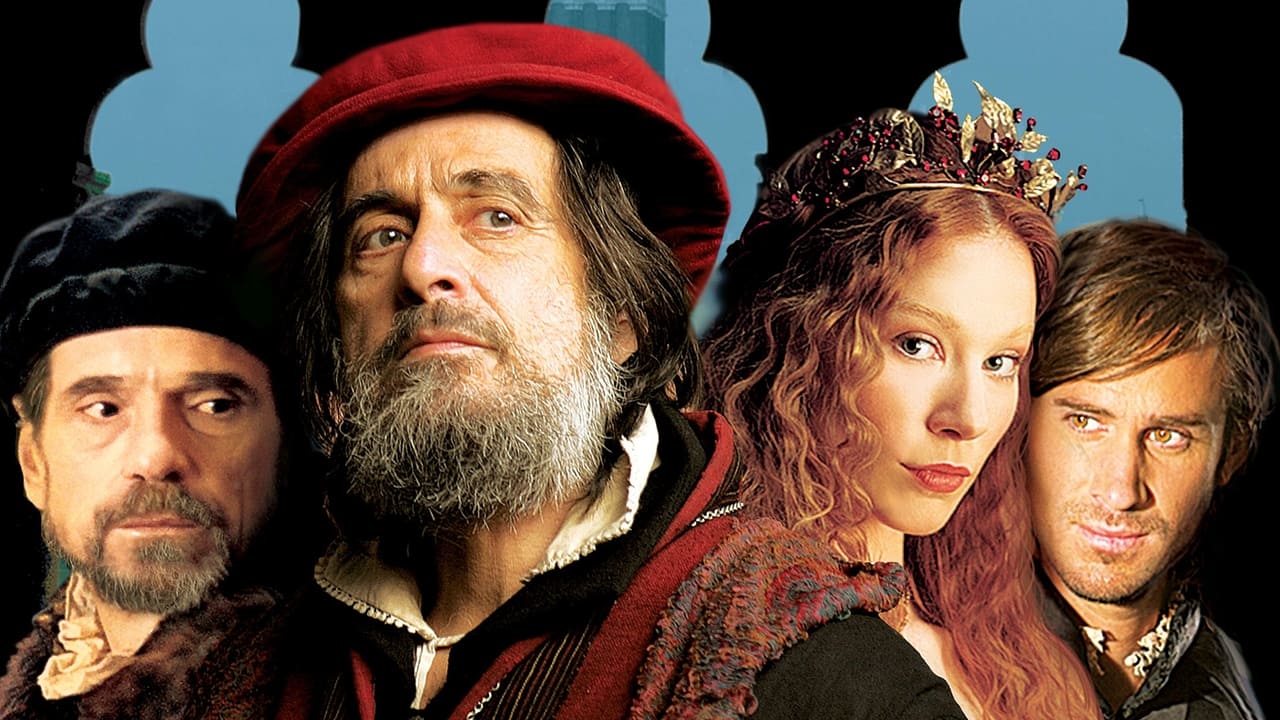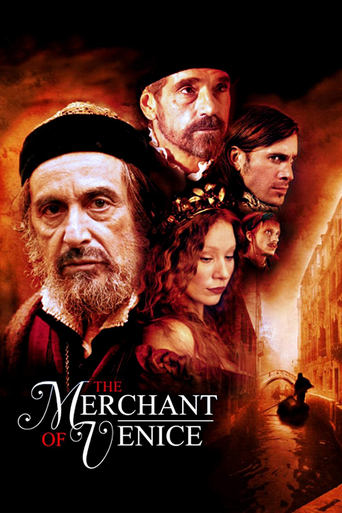

Let's be realistic.
... View MoreBest movie ever!
... View MoreAfter playing with our expectations, this turns out to be a very different sort of film.
... View MoreClose shines in drama with strong language, adult themes.
... View MoreShakespeare would have given -1 to this movie. In this movie, Antonio and Bassanio have been portrayed as two bisexual men whereas Portia and Nerissa act like two high school girls, probably going through puberty.In Act I Scene 2, there were many comical parts but were not given much importance.Or even, in Act V Scene 1, Lorenzo and Jessica's exchange of 'On such a night',or their game of references to mythical and legendary nights have been omitted Yeah, I know it's a movie so everything can't be included, but, unnecessary parts too have been included, like many a times, women inadequately dressed, pass in front of the camera or like Prince of Arragon spitting on a container.Even Portia and Nerissa kiss! All in all,extremely disappointed.
... View Morei fell in love with this play as a boy! it amazed my father. he could not understand my fascination with it. i have always loved it. it shows the rampant hatred world-wide against the jews. this hatred was unfounded. i waited in 2003 3 months to see this movie! i stood at the door of the theater waiting to see it. to my horror, it opened in only one theater. i was one of 3 or 4 people waiting to see it! what has happened to mankind? have their brains dried up? the history, the costumes, the music, the words, were perfect. al pacino is shylock. lynn collins is wonderful, as well. all of the parts were played with passion similar to the old vic theater! bravo for having the courage and integrity to make this movie!
... View MoreThis film is billed as,"William Shakespeare's Merchant of Venice". It is not. It is Michael Radford's Merchant of Venice and all its faults are Radford's. The first line written by Shakespeare isn't heard until the film has been running for about six and a half minutes.Its seems that Mr Radford didn't know much about Shakespeare's plays when he did this film. He obviously didn't know that MOV was one of Shakespeare's comedies. There are no tragic figures in the comedies! Shakespeare's comedies were meant to be light and quick in performance. Instead he has given us a heavy handed version,slow moving as a glacier,full of darkness, pointless pauses, and very annoying whispering/mumbling, mostly by Joseph Fiennes though other actors follow his example from time to time. Even the episode with the rings is played with deadly seriousness. It seems Mr Radford can't recognise comedy when it is staring him in the face.Trying to turn a comedy into a tragedy is as foolish as trying to turn a tragedy into a comedy. But Radford was determined to make Shylock look like a tragic figure deserving of our sympathy so he went ahead and did it. He is not the first director to make that mistake.This is a very disappointing version of a great play. It takes second place on my list of worst ever filmed versions of Shakespeare (just behind a version of Julius Caesar starring Jason Robards)
... View MoreThis is a beautifully made film, and Al Pachino as Shylock is simply magnificent. I have noticed that Pachino has been taking a number of roles in Shakespeare plays, one of the others that I have seen is where he plays Richard III in Looking for Richard. Being able to effectively play a Shakespearian character is quite a task and I must say that both Pachino and Irons do a magnificent job.The setting is period, meaning that we are in Venice in the 14th century. However Shakespeare's understanding of the Venetian government is quite limited. I note he refers to the Duke of Venice, however Venice did not have a royal family per se, but was rather a republic that was ruled by an elected official (the Doge). The movie though tends to follow through with the play, though I noted that with Othello they did have the ruler of Venice dressed as the Doge would have been dressed.I will not go into details regarding the plot as I believe that the plot is quite familiar anyway. However, it really has two interlinking plots, namely Bassiano's courting of Portia, and the feud between Shylock and Antonio over the payment of a debt. Shylock wants his pound of flesh after Antonio was left temporarily destitute and unable to pay his dues.This play is all about mercy, and contrasts Shylock's unmerciful and vengeful nature with the Venetians who, at the end of the play, show Shylock mercy. However it is clear from Shylock that this is pretty much a once off event, as if they wanted to demonstrate to Shylock that they are not hypocrites. I can't say whether they treated Shylock all that badly beforehand, though it is true that Jews in Venice were treated as second class citizens.This movie is beautifully made, and appears to try to recreate Venice of the 14th Century. I note that many of the characters, when wondering the streets, will wear masks, and while it was something that passed me by the last time I saw it, when I went to Venice I noticed that there were lots of masks for sale, and suspected that the wearing of a mask while out of your house was accepted fashion. However I am unsure whether that applies with the low cut tops that we see everywhere.Another interesting this that I discovered is that in the movie Antonio and Bassiano are apparently homosexual lovers. It is suggested that in the play it is implied by never stated outright (which you probably wouldn't do in 16th Century England anyway), though it is much more noticeable in the movie. However, innocent little me didn't seem to actually notice it.
... View More